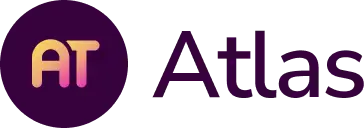Written by Megan Davenport and Elizabeth Clarkson, Ed.D, FariaPD
There are many different ways to approach lesson planning. Some schools or districts ask for a consistent approach, while others allow flexibility for teachers to outline their lessons as they see fit. We have outlined several examples of lesson plan templates below to spark ideas and conversation. We hope they inspire you to create a lesson plan template that will meet your needs!
If you are using the Atlas platform, here is an example of the full lesson planning view:
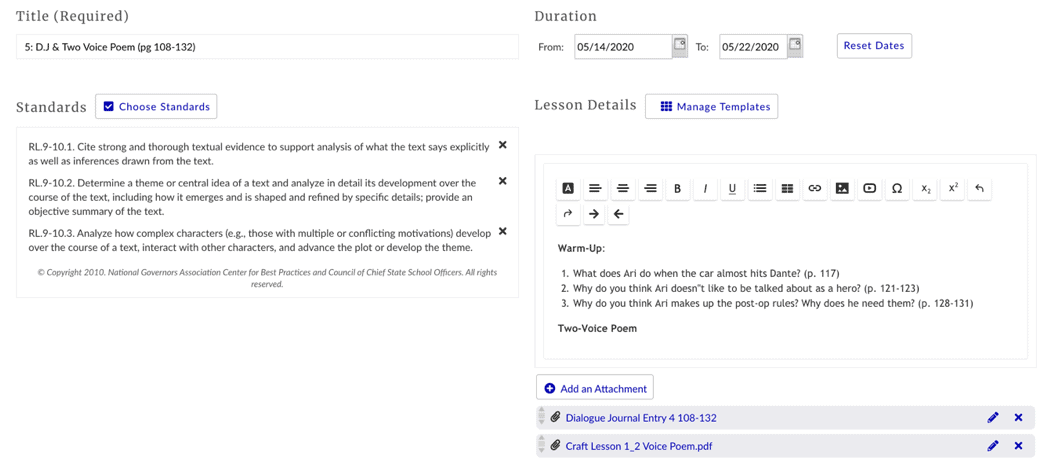
For support using and customizing the lesson planner in your Atlas system, please visit our support manual!
Remember, these lesson plan templates should be used to spark your creativity and inspire you to consider what instructional elements will help you plan successful lessons for your own classroom! Depending on your grade level, the subjects you teach and how often you see your students, or the school’s unique values and priorities, your lesson planning template will be unique!
You might create your lesson plan template based on:
- Subject or standard- specific goals:
- Next Generation Science Standards (NGSS):
- College, Career, and Civic Life (C3) Framework:
- 5E Lesson Planner
- Language Arts Lesson Planner (Elementary)
- Curriculum philosophy or method:
- Backwards Planning
- Project Based Learning (PBL)
- Hunter Decision-Making Model for Planning Direct Instruction
- Multi-Day lesson plans:
- Weekly Lesson Plans
Next Generation Science Standards (NGSS):
Many schools use their Atlas lesson planning template to emphasize the three dimensions of the NGSS and by using the 5 Es of Science Instruction Model.
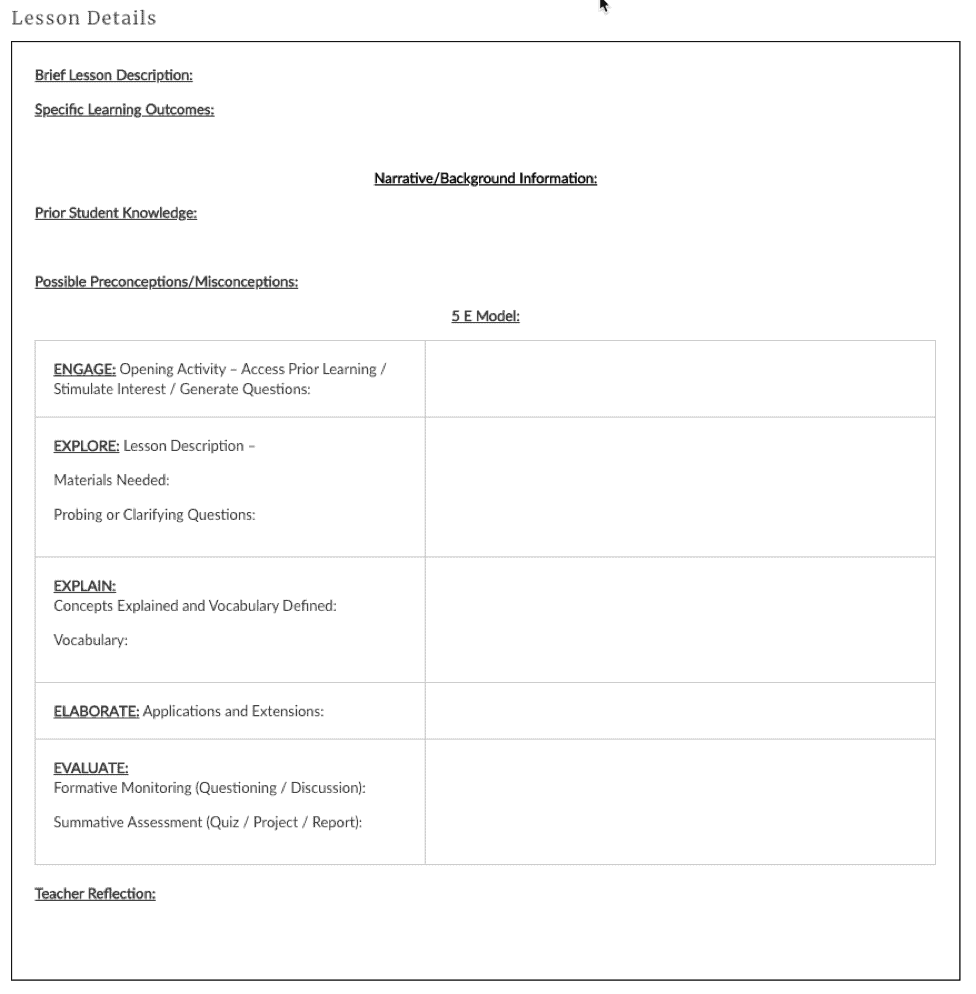
College, Career, and Civic Life (C3) Framework:
Some schools opt to build standards-specific lesson planners, beyond just aligning to standards. For example, the C3 framework is organized into four dimensions embodying the four steps in the Inquiry Arc, which is reflected in the lesson planner attached to this section.

5E Lesson Planner
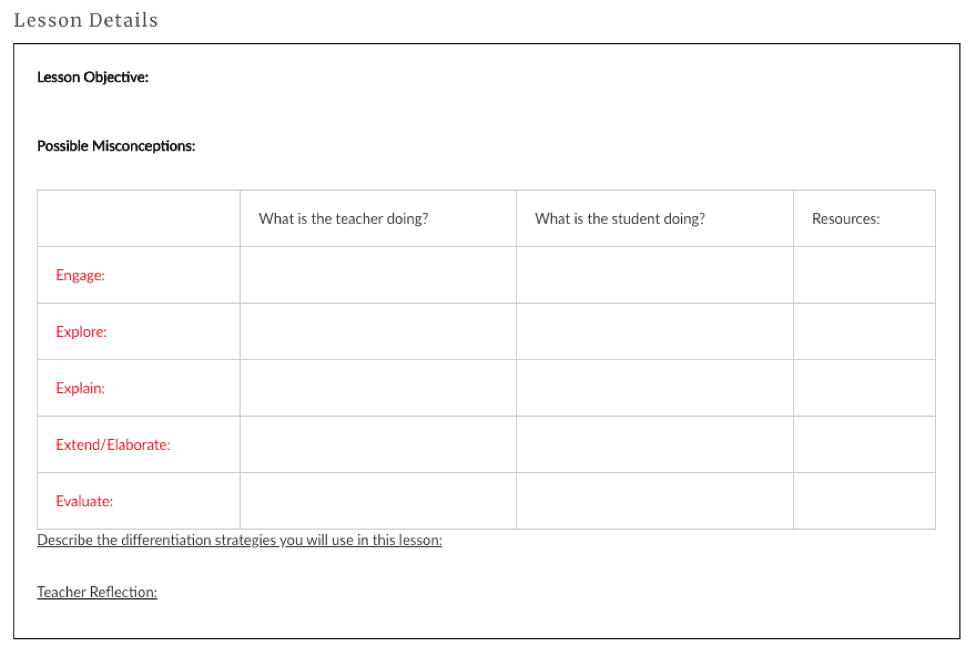
Language Arts (Elementary):
When planning, always keep in mind that active engagement supports learning. Try adding a section to focus on what exactly a teacher vs student is doing in the lesson. If the teacher is talking and the student’s job is to listen, consider ways to engage the student in different ways, both physically and cognitively.
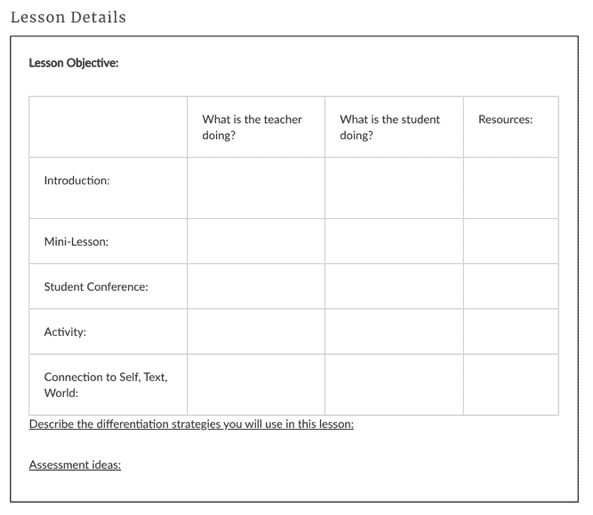
Backwards Planning
Planning with the end in mind is a common approach for both unit planning and lesson planning. Some teachers might use an Understanding by Design (UbD)-inspired template for lesson planning, while others might use an adapted version. Below you can find two ideas to get you started!
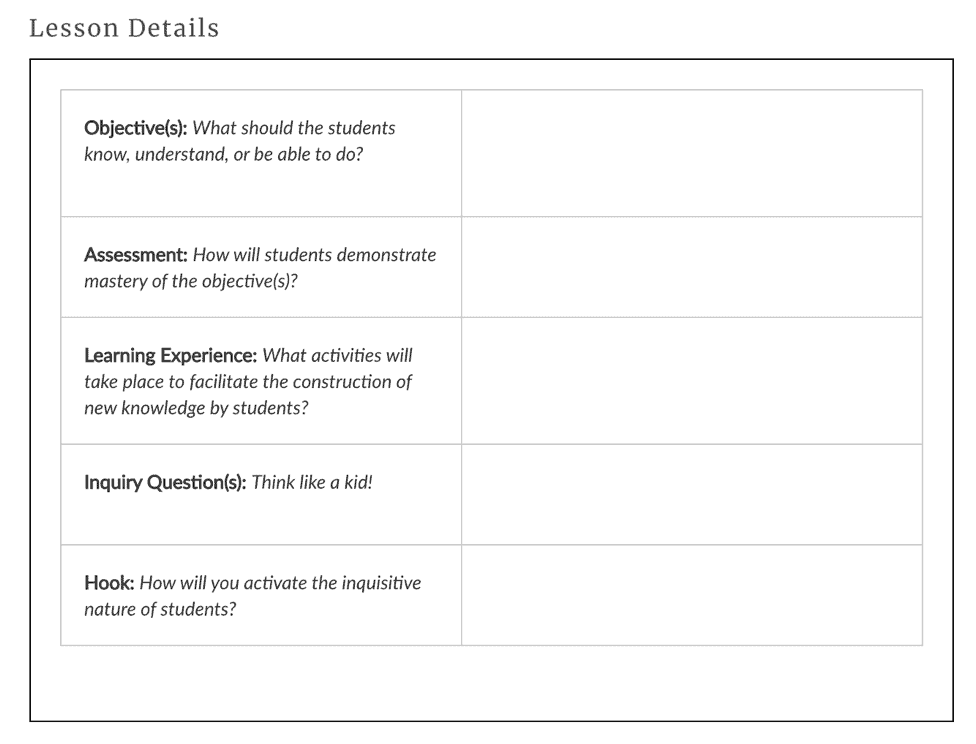
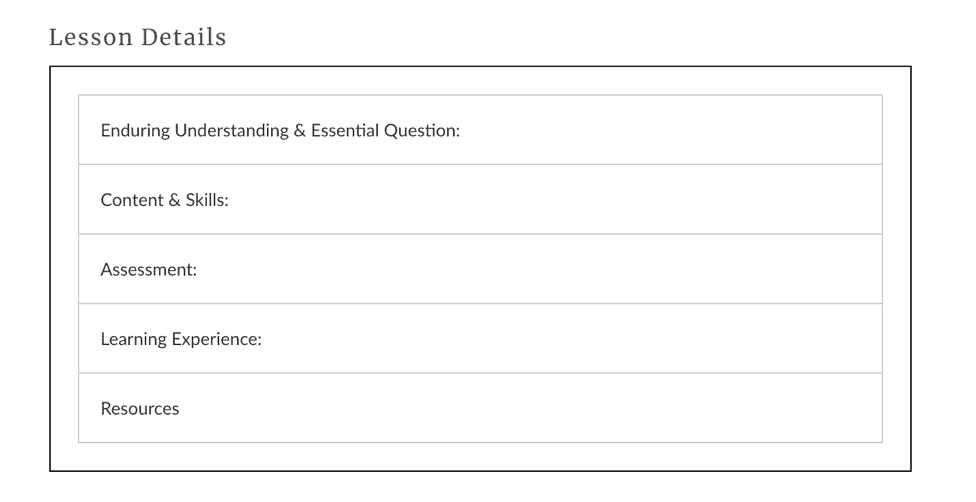
Project Based Learning (PBL)
Project Based Learning is a teaching method in which students gain knowledge and skills by working for an extended period of time to investigate and respond to an authentic and challenging question, problem, or challenge. Most PBL planning is done using a unit approach, but weekly lesson details can assist teachers by breaking down a complex project into weekly/daily objectives.
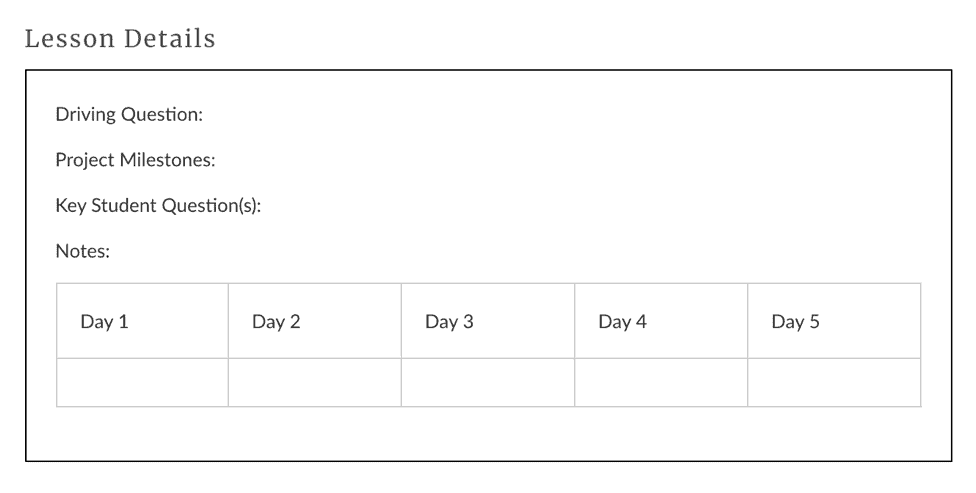
Hunter Decision-Making Model for Planning Direct Instruction
The Madeline Hunter method is a kind of direct instruction model and most often used at the lesson planning level. This model includes several elements:
- Objectives; standards; anticipatory set;
- Teaching (input, modeling, and checking for understanding)
- Guided practice; closure; and independent practice.
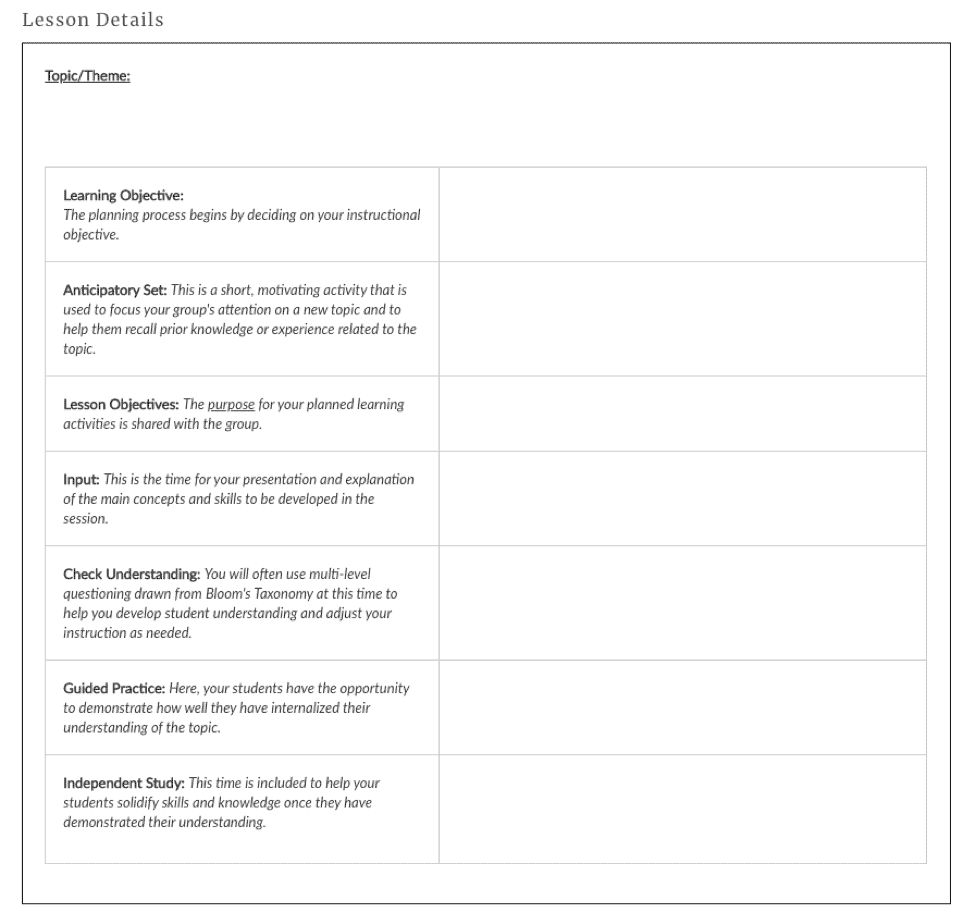
Weekly Lesson Plans
Many teachers, especially at the elementary level, create an outline of their lesson plans on a weekly basis. This can allow for a smooth transition from the unit plan to daily learning goals. Here you will see a simple example for outlining daily objectives and experiences, as well as an outline for tracking group work, such as leveled reading groups, math groups, or centers.
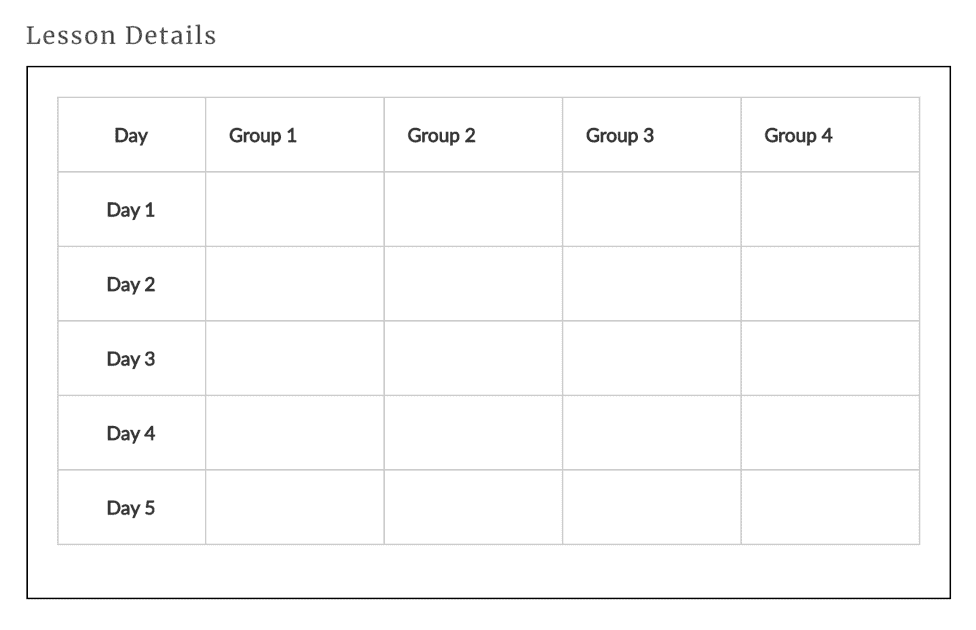
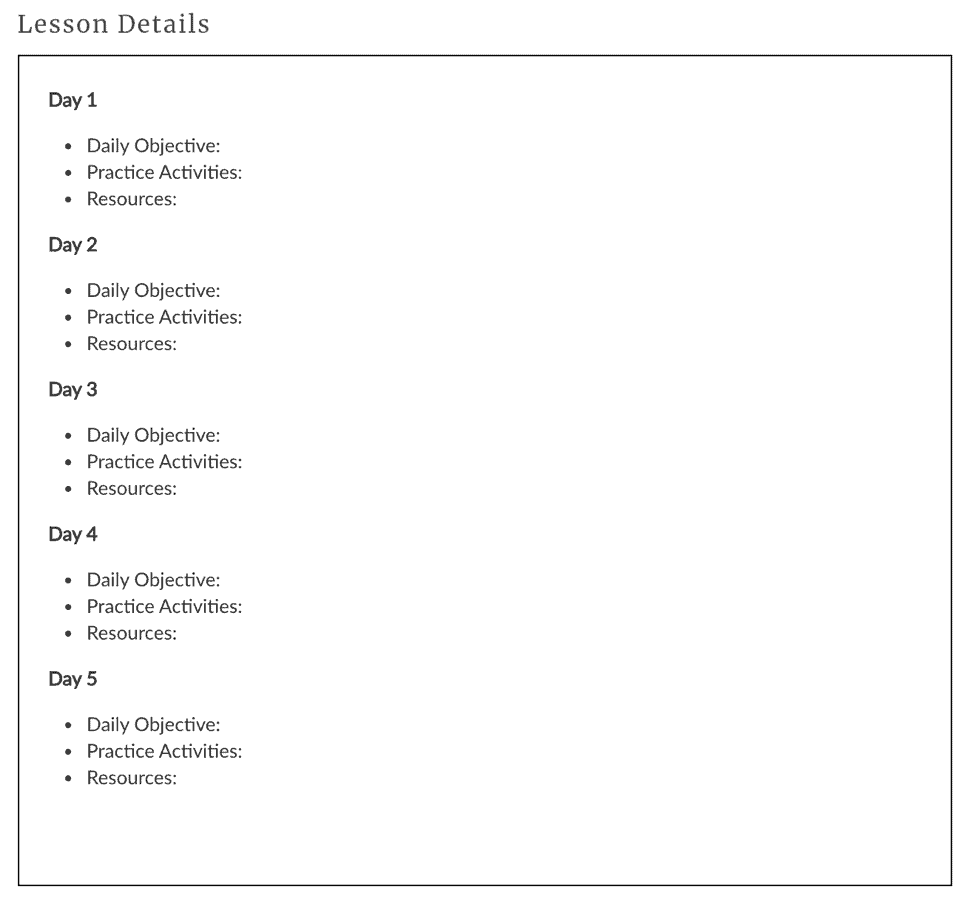
Remember, these lesson plan templates should be used to spark your creativity and inspire you to consider what instructional elements will help you plan successful lessons for your own classroom! Depending on your grade level, the subjects you teach and how often you see your students, or the school’s unique values and priorities, your lesson planning template will be unique!
